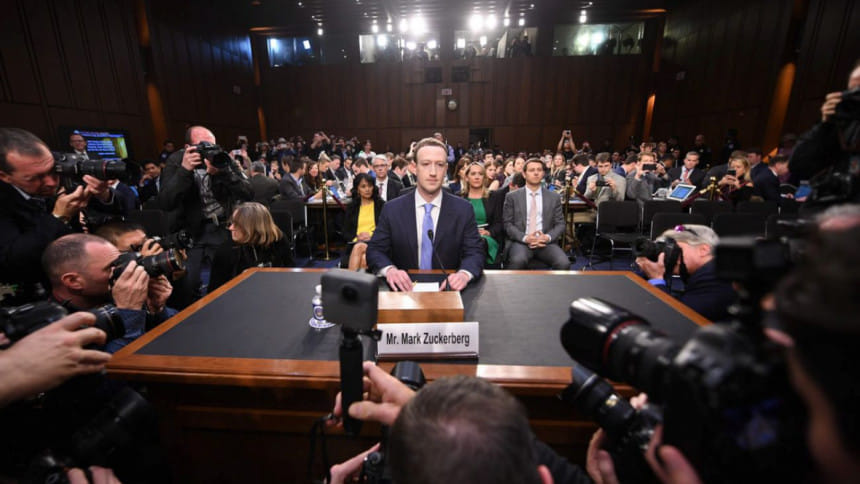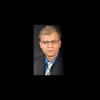Towards a 'broad enough view' of social media

Mark Zuckerberg, the Facebook CEO, rarely speaks in public. But recently he spoke before US Congress for hours. Facebook came under intense criticism from many quarters after it was reported that a political consulting firm called Cambridge Analytica harvested Facebook user data without their knowledge and authorisation. Zuckerberg apologised to the Congress for failing to safeguard user data, saying that his company would take measures and welcome regulations from Congress. One thing he said that caught my attention deserves more discussion. Zuckerberg said that the company failed to take a "broad enough view" of its product. I think it is not only Facebook—we as a society have also failed to take a comprehensive view of Facebook and the slew of other social media.
Many in the academia and professional community welcomed digital social media enthusiastically, touting that these would give "freedom" to audiences. They pointed out that traditional mass media always retained elite control through the practice of "gate-keeping". Audiences of mass media were deemed passive. Even though some technologies emerged, such as remote control and recording features, audience activities remained limited to flipping TV channels and watching programmes at convenient times. Digital media almost altered the scenario. Audiences are not just the passive receivers of media messages; they are also the producers of media content. The elite control of media has become a practice of the past. Now, anyone with a smartphone can post on social media, which is potentially accessible to millions. The traditional one-to-many model of mass media has largely been replaced with a many-to-many model of digital and social media.
However, not everything is rosy with digital social media. Various forms of social media have developed at a high pace and we embraced them without thinking seriously about their effects on society.
Yes, social media have some sorts of democratising effects. People throughout the world are able to bypass traditional media and the official sources of information. This democratisation of information has even been the catalyst of some social and political movements throughout the world, especially in the Middle East, where long-term dictators kept a tight leash on mass media and people's right to express their opinion. Many observers believe that without social media, the so-called Arab Spring would not have happened. Social media helped spread the outrage, craft messages, and gave organisers the tools to orchestrate and sustain protests that eventually caused the downfall of regimes in countries such as Egypt and Tunisia.
But social media is not without controversy. Many observers now are beginning to talk about its dark side. It's now a fact that some Buddhist monks in Myanmar used Facebook to spread hate that eventually led to mass criminalisation and killing of Rohingyas. Web-based social media sites are being used as tools of radicalisation by terrorist outfits such as ISIS. But spreading of misinformation on a mass scale and the so-called weaponisation of social media have caused the most devastating effects.
Misinformation and propaganda always existed and a variety of government and non-government actors utilised a variety of media to spread misinformation. However, many observers believe that propagation of misinformation through social media has reached a new high. We are yet to understand fully the extent and effect of misinformation on social media, but we know that bad actors can hack sites, steal personal data and launch misinformation campaigns using bots. Bots are used to create false messages and spread those messages using social media platforms such as Facebook and Twitter. For instance, by using bots a tweet with a false message can be created and sent to millions of users with hundreds of thousands of fake "likes" assigned to that tweet. And that tweet will obviously "trend" and millions more will retweet it, spreading the false message like wildfire. This is certainly the dark side of social media.
Another danger comes from social media because of its ability to penetrate deep into their users' lives. Social media is very personal. Users need to create personal accounts and they are tempted to provide personal details in their social media posts. On social media, many users wilfully reveal sensitive personal information, which they would hesitate to reveal with family and friends in real life. In most cases, users do not fully realise the consequences of sharing personal information.
It's not a surprise that, as businesses, social media platforms have to make money. They offer free access to their platforms but they sell their users' information to the advertisers. Traditional print and electronic media also sell their readers' and audiences' profiles to the advertisers. But different social media platforms combined accumulate a staggering volume of information, triggering serious concerns of data abuse. That's exactly what happened with the recent Facebook incident, forcing Mark Zuckerberg to apologise for the breach of user data and subsequently appear before the US Congress. According to media reports, Cambridge Analytica, which is a political data firm, accessed millions of user data without users' knowledge and authorisation. Cambridge Analytica was hired by Trump's 2016 presidential campaign. It is obvious that the stolen data was used to manipulate voters, and thus might have tilted the election in Trump's favour.
It's evident that social media cut both ways. The web of social media gave voice to millions of people throughout the world. These have expanded the global public sphere greatly, giving voice to a whole host of actors, including social and political activist groups. Social media users continue to express their voices on a variety of issues, triggering some social and political changes. Autocratic governments all over the world are finding it increasingly difficult to tame social media voices. But at the same time, social media are being used for spreading hate, misinformation and mass propaganda. So, what's the solution? As Mark Zuckerberg indicated, some regulation might be necessary to protect users' privacy. Social media must employ more staff to identify hate speech, propaganda, fake news and take immediate action to remedy any wrong-doing. Social media companies must work closely with civil society groups who are generally better able to monitor social media and identify troubling trends. Thus far, social media has played a role in monitoring traditional media and identifying misrepresentation; it's time traditional media became better watchdogs of social media.
Shafiq Rahman is a Professor and the Chair of Communication and Social Sciences Department at Chadron State College, Nebraska, USA.





Comments